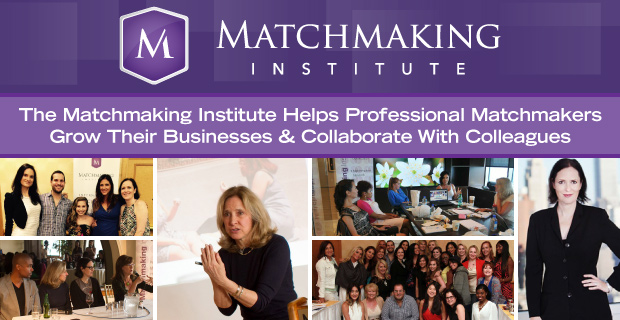Sophia McDonald believes she has Cupid’s arrow in her purse.
Forget the fact that she is single. She’s got a large database of contacts and a certificate from the Matchmaking Institute in New York. So this modern-day Emma is leaving her career as a real estate broker to put her own spin on the age-old art of matchmaking.
“I believe I have a lot of intuition,” says McDonald, 34, who is launching a company called Sophisticated Matching. “I’m very spiritual and sensitive. When I meet people, I tend to understand them very well.”
There were an estimated 1,300 independent matchmakers in the United States in 2006, according to Marketdata Enterprises, with the average grossing close to $200,000 a year. Those who have succeeded in the industry say the market for matchmakers is ripe, noting the growing number of people fed up with online dating.
But what makes up a matchmaking career? “It might sound easy and glamorous and fun, but it requires a lot of time, a lot of dedication,” says matchmaker Christie Nightingale. “Sometimes it’s a thankless job. Your clients are depending on you to get them into a relationship. We’re only as good as our last match.”
GETTING STARTED: A former fashion model, Nightingale says she has always had a knack for making matches. She used to host big parties; she says she ended up “marrying quite a few friends through those parties.” So when she reached her late 30s — ancient in fashion model years — she started a matchmaking service.
After learning the ropes from a matchmaker friend in California, she opened Premiere Match in 2001. She asked her single friends to sign up and placed ads in newspapers and magazines. The response was nearly overwhelming.
“In the beginning, it was insane,” says Nightingale, who has been married for 10 years. She put in 12-hour days, including office hours and interviews with prospective clients.
The business has grown 30 percent each year since, she said.
With 2,000 clients in New York and more than 1,000 in Philadelphia, she’s opening an office in Washington. She says 87 percent of clients have started some type of relationship with her matches, and 400 couples have married.
THE BUSINESS: Details matchmakers must fret over include fees (some charge $10,000 for a one-year contract); guarantees (matchmakers shouldn’t guarantee love; only introductions); types of clients (whether to focus solely on gay singles, blacks, Jewish or men); and cancellation or hold policies (can someone put their contract on hold in case she meets the man of her dreams on the bus?).
When Lisa Clampitt, a former social worker, decided to become a matchmaker nine years ago, she had no idea where to learn the specifics of the business.
“I made a lot of mistakes,” says Clampitt. “Coming from a social work background, you get your license, you follow a code of ethics. There was no quality control in this industry.”
She and Jerome Chasques opened the Matchmaking Institute in 2003. The school certifies students who pay $1,500 to complete 22 hours of training, pass an exam and agree to follow a set of standards. The institute has certified more than 200 matchmakers — men and women — and will host its first conference in September.
“Ultimately, there should be standards that are about respecting the client,” Clampitt said. “We’re so far from that right now.”
MATCHMAKING WANNA-BES: Not everybody is getting certified.
Janis Spindel, author of the upcoming “How to Date Men” and a professional matchmaker for 15 years, loathes the idea of someone training to be a match- maker.
“How can completing a course qualify someone?” Spindel said.
She works with men only, charging them $100,000. Spindel said there are a lot of “matchmaker wanna-bes” who oversell their services or ignore their clients’ wishes.
“You either have the sixth sense or you don’t,” she said. “I can say I am gifted. I meet a man, go out on a simulated date with him and in a matter of minutes, I can tell him who he is going to marry. And eight out of 10 times I’m right.”
By MEGAN SCOTT THE ASSOCIATED PRESS



